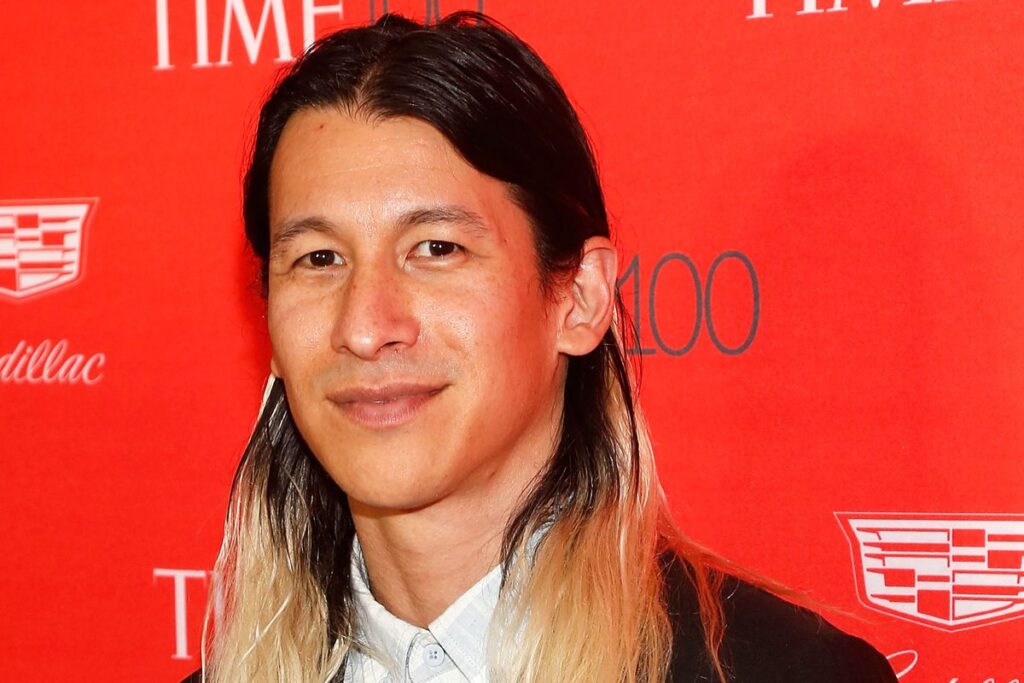
Perry Chen is an American artist and entrepreneur known as the founder of Kickstarter, an online funding platform for creative projects.
Early life and education
Perry Chen was born on June 21, 1976, in New York City. Chen grew up on Roosevelt Island in New York City with his mother, who was a social worker, and his father, who was a school teacher. Chen received a bachelor’s degree from the university’s Freeman School of Business in 1998. Between 1998 and 2009, Chen held various jobs, including day trader, disc jockey, waiter, preschool teacher, and electronic musician.
Early career
In October 2000, Chen co-founded the Southfirst art gallery in Brooklyn. In late 2001, Chen resided in New Orleans and worked as a musician. After encountering hardship in getting two Austrian disc jockeys and venue management to commit to a performance without money up front, Chen developed a concept to connect investors with artists and musicians that would let the latter to produce and promote their work. In February 2018, after 17 years in Brooklyn, Southfirst’s building was sold.
Kickstarter
On April 28, 2009, Perry Chen launched Kickstarter, an American public-benefit corporation that sustains a global crowdfunding platform concentrated on merchandising and creativity, along with American Web designer Charles Adler and American media editor Yancey Strickler. The New York Times recognized Kickstarter as the people’s NEA. Time also named Kickstarter as one of the Best Inventions of 2010 and Best Websites of 2011.
Andy Baio served as Kickstarter’s Chief Technology Officer until November 2010, when he entered Expert Labs. Lance Ivy has been Lead Developer since the Kickstarter launched. Kickstarter released an iOS app on February 14, 2013, called Kickstarter for the iPhone. The app was aimed at users who made and back projects and was the first time Kickstarter had an official mobile presence.
In 2013, Chen was honored on the annual list of Time’s 100 most influential people. In October 2013, Chen announced that he would be stepping down as CEO and would instead undertake the role of chairman beginning January 1, 2014. In December 2014, Chen exhibited Computers in Crisis for the New Museum’s First Look program, co-presented by Creative Time Reports and Rhizome.
Kickstarter launched projects based in the UK on October 31, 2012, followed by projects in Canada on September 9, 2013, New Zealand and Australia on November 13, 2013, the Netherlands on April 28, 2014, Ireland, Denmark, Norway, and Sweden on September 15, 2014, Germany on April 28, 2015, Spain and France on May 19, 2015, Belgium, Austria, Luxembourg, Italy, and Switzerland on June 16, 2015, Hong Kong and Singapore on August 30, 2016, Mexico on November 15, 2016, and Japan on September 12, 2017. In July 2017, Strickler announced his resignation.
Projects
On June 21, 2012, Kickstarter began issuing statistics on its projects. As of February 13, 2015, there were 207,135 launched projects, which 7,802 is in progress with a 40% success rate. The total amount pledged was $1,523,718,656. The business enlarged rapidly in its early years. In 2010, Kickstarter had $27,638,318 pledged and 3,910 successful financed projects. The corresponding statistics for 2011 were $99,344,381 pledged and 11,836 successfully financed projects, and there were $319,786,629 pledged and 18,109 successfully financed projects in 2012.
On February 9, 2012, Kickstarter hit various milestones. Casey Hopkins created a dock built for the iPhone and became the first Kickstarter project to surpass one million dollars in pledges. A few hours later, another game project sprung by Double Fine Productions, has reached the same number, having been started less than 24 hours earlier, and ended with over $3 million pledged, which was also the first time Kickstarter accumulated over a million dollars in pledges in a single day. On August 30, 2014, Ryan Grepper created the Coolest Cooler, an icebox and became the most funded Kickstarter project in history, with $13.28 million in funding, breaking the record previously held by the Pebble smartwatch.
Wharton professor Ethan Mollick and Jeanne Pi ran research in July 2012, into what provides to a project’s success or failure on Kickstarter. Some dynamic conclusions from the analysis were that rising goal size is negatively linked with success, projects that are included on the site’s homepage have a probability of 89% being successful, opposed to 30% without, and for an average project of $10,000, a 30-day project has a 35% chance of success, while a 60-day project has a 29% chance of success, all other things being constant.
Funding round
In March 2009, Kickstarter raised $10 million in a venture round from highly profiled investors, including Union Square Ventures, Thrive Capital, Lowercase Capital, and Betaworks incubator/seed investment fund. Other well-known entrepreneurs/angels like Twitter co-founder Jack Dorsey, Vimeo co-founder Zach Klein and Flickr co-founder Caterina Fake, David Cross, Joshua Stylman, Peter Hershberg, Joi Ito, Chris Sacca, Joshua Schacter, Matt Haughey, Scott Heiferman, Josh and Jared Kushner, and Chris Kaskie, has also participated this round.
Kickstarter has $34.6 million in estimated revenue annually. Kickstarter competes with Indiegogo, GoFundMe, and RocketHub.
Acquisitions
Kickstarter has acquired DRIP, a community for independent artists and record label, and Huzza, a Canadian video streaming.